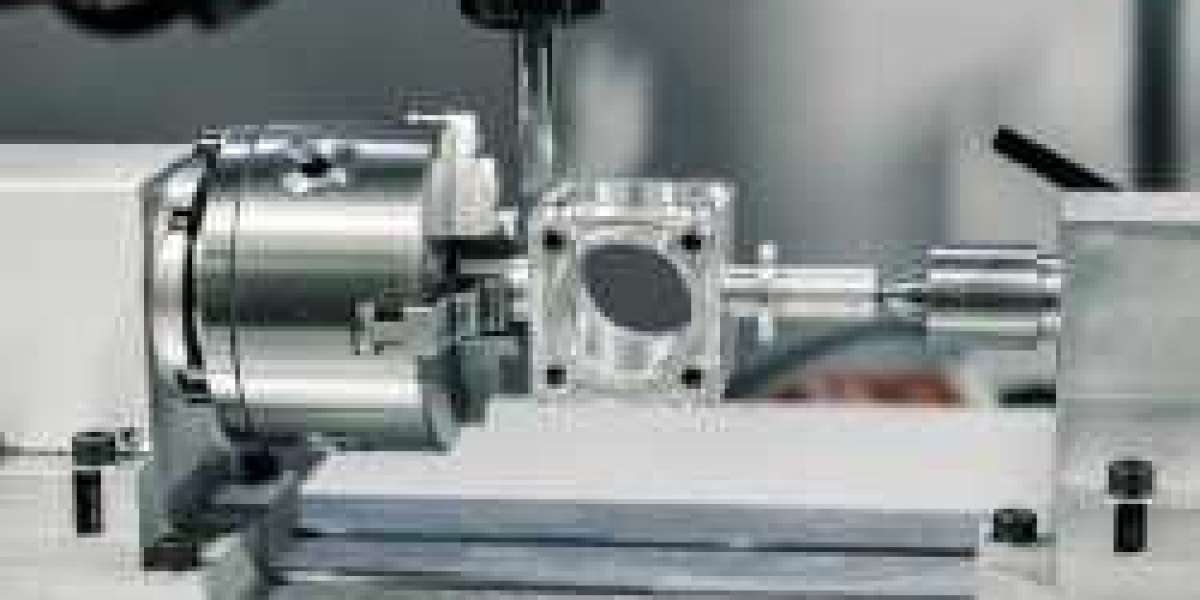Precision machining plays a pivotal role in both the aerospace and medical industries, where the demand for high-precision components and parts is paramount. This detailed guide explores the significance of precision machining in these sectors and highlights the key factors that make it a key player.
Precision Machining in Aerospace:
Critical Components: Aerospace applications require components that meet exceptionally high tolerances. Whether it's engine parts, landing gear components, or airframe structures, precision machining ensures that these critical parts are manufactured to exact specifications.
Material Expertise: Precision machining involves working with a wide range of materials, including aluminum, titanium, and advanced composites. The ability to machine these materials with precision is crucial for lightweight and durable aircraft construction.
Complex Geometry: Aerospace parts often feature intricate and complex geometric designs. Computer Numerical Control (CNC) machining, along with multi-axis milling and turning, enables the production of these challenging shapes with exceptional accuracy.
Safety and Reliability: Safety is paramount in aerospace. Any failure of components can have catastrophic consequences. Precision machining techniques and quality control measures ensure that every part meets the highest standards of safety and reliability.
Lean Manufacturing: Aerospace manufacturing demands efficiency and cost-effectiveness. Precision machining, combined with lean manufacturing principles, optimizes production processes, reduces waste, and enhances overall productivity.
Precision Machining in the Medical Industry:
Life-Saving Equipment: Precision machining is indispensable in the production of medical devices and equipment. From surgical instruments to implantable devices, the medical industry relies on machining for precision and quality.
Biocompatible Materials: Medical components often come into direct contact with the human body. Machining experts work with biocompatible materials like stainless steel, titanium, and medical-grade plastics to ensure they are safe and non-reactive.
Miniaturization: Many medical devices, such as pacemakers and endoscopic tools, require intricate and miniaturized components. Precision machining's ability to create small, intricate parts is invaluable in these applications.
Regulatory Compliance: The medical industry is heavily regulated, with strict quality and safety standards. Precision machining processes are designed to meet or exceed these regulations, ensuring that medical components are of the highest quality.
Customization: The medical field often demands customized solutions tailored to individual patients. Precision machining allows for the production of patient-specific implants and prosthetics, improving patient outcomes.
Common Factors for Precision Machining in Both Industries:
Advanced Machinery: Modern precision machining relies on state-of-the-art CNC machines equipped with cutting-edge technology. These machines offer precision, repeatability, and the ability to handle a wide range of materials.
Quality Control: Stringent quality control measures are applied throughout the manufacturing process in both industries. This includes inspections, measurements, and testing to ensure that every component meets the required standards.
Skilled Workforce: Skilled machinists and engineers are crucial in precision machining. They possess the knowledge and expertise to program, operate, and maintain CNC machines, troubleshoot issues, and optimize processes.
Constant Innovation: Both aerospace and medical technology are dynamic fields. Precision machining continuously evolves to meet the demands of new materials, designs, and technologies.
Traceability: Traceability of materials and processes is essential in both industries. It allows for tracking and documentation of each component's journey from raw material to final assembly.
In conclusion, precision machining is an indispensable part of the aerospace and medical industries. Its ability to create high-precision components from various materials makes it a key player in ensuring the safety, reliability, and innovation necessary for these critical sectors. As technology continues to advance, precision machining will remain at the forefront of aerospace and medical manufacturing, driving progress and enabling life-changing innovations.



